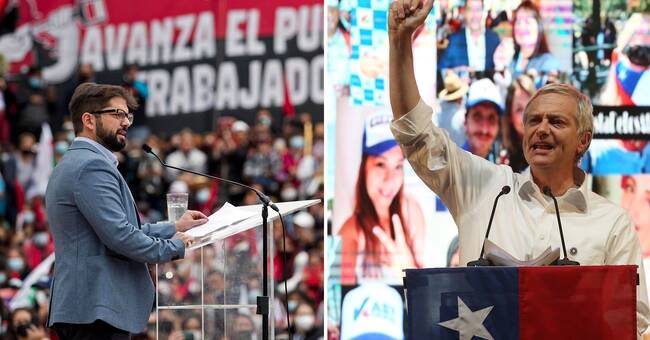Sunday's election in Chile has been described as the most polarized since democracy was reintroduced in 1990.
On one side is the 51-year-old right-wing candidate José Antonio Kast, a former congressman with strong family ties to the Pinochet dictatorship.
"If Pinochet were alive, he would have voted for me," he said in a radio interview as late as the end of November.
Kast has profiled himself as a strong opponent of illegal immigration, as a defender of the open market and as an advocate of conservative family values.
His political profile has often led to comparisons with Brazilian President Jair Bolsonaro.
Former student leader
On the other side is the 35-year-old left-wing candidate Gabriel Boric, a current congressman and former leader of one of Chile's largest student organizations.
Ten years ago, he became known to the general public as one of the leading figures in a large protest movement that demanded changes in the country's privatized education system.
In this year's election campaign, he has, among other things, advocated increased taxes for the richest part of the population, strengthened rights for the indigenous population and promised to reform the pension system.
Smoother in the measurements
Neither Kast nor Boric managed to reach over 50 percent of the votes in the first round of elections, which had been required to secure the presidency.
The two top candidates now meet in a directly decisive final round.
Most opinion polls have shown a lead for left-wing candidate Boric.
But as election day approached, the distance has shrunk.
According to a new survey from Cadem, one of the major opion companies in Chile, Boric has a lead of 52 percent - 48 percent.
The poll also showed that a quarter of voters still have not decided or will not vote at all.
There is now much to suggest a thrilling final round of elections that may be uncertain into the last.

